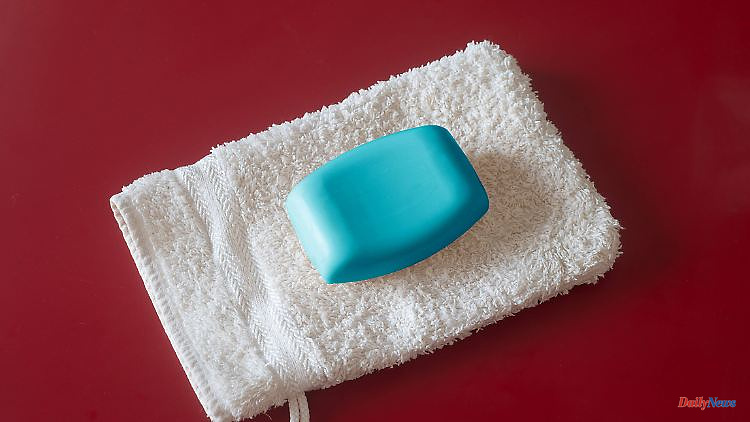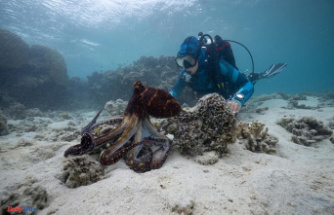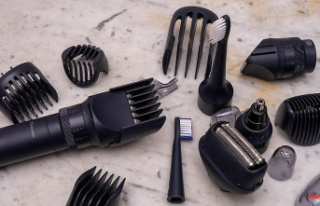Save, save, save is the motto of the last few months. But how do the numerous austerity measures affect health? Experts answer these questions and give tips on how to get through the winter well.
Turn down the heating, shower less often and wear cozy slippers - with a few simple tricks you can save water and energy. The austerity measures may be good for the wallet, but are they also good for your health? Experts explain when saving becomes unhealthy.
Refrain from heating
"For fear of excessive additional costs, some people would like to do without heating altogether," reports Heinz-Jörn Moriske from the Federal Environment Agency. However, he strongly advises against it: "There must be a minimum of heating and ventilation," says the indoor air hygiene expert. Because: "When we cook, shower, dry clothes or even just breathe, we produce moisture - and cold air is less able to absorb it than warm air." Therefore, the risk of mold growth on walls in used living spaces increases massively at 16 to 18 degrees Celsius. "Mould can intensify existing allergies and trigger new allergies," says Moriske. Hours of ventilation can reduce humidity, but that's not an option in winter. He recommends 19 to 20 degrees for living rooms, 18 degrees for bedrooms and 19 degrees for offices. At these temperatures, the risk of mold does not increase significantly.
lower water temperatures
Boilers for hot water also consume a lot of energy. Can you just lower the temperature here? "We recommend 55 degrees," says Heinz-Jörn Moriske from the Federal Environment Agency (UBA). That is the flow temperature at which legionella are killed. The bacteria are generally found in tap water, but multiply particularly well at temperatures between 20 and 45 degrees. Legionella can be inhaled via shower aerosols and cause pneumonia. "Legionella pneumonia is not a harmless disease," says Moriske. In a house with central water heating and a central hot water tank, the regulator temperature on the drinking water heater should be set to at least 60 degrees so that the water temperatures in the pipe system never drop below 55 degrees, the UBA recommends.
Heat less without cooling down
"Room temperatures of 18 to 19 degrees were completely normal just a few decades ago," says Martin Exner, President of the German Society for Hospital Hygiene. He therefore does not see a reduction to these temperatures as critical. "It only becomes critical if you get cold all the time. For sedentary activities, you might have to consider not only warm clothing but also a woolen blanket for your personal well-being," says Exner. Exercise also helps in between. Through physical activity, the body generates heat. “Anyone who is ill, however, should take special protection”.
Washcloth instead of shower
In the summer, Baden-Württemberg's Prime Minister Winfried Kretschmann made headlines with his suggestion that people use a washcloth instead of "constantly" showering. "Daily showering, especially long showers, leads to dehydration and a reduction in the protective film on the skin," says dermatologist Norbert Brockmeyer from the Ruhr University in Bochum. The daily shower is therefore to be seen rather critically. For people who are not exactly hard workers, washing under the armpits and in the genital area with a cloth is sufficient, provided that it is changed daily. A bidet is also a good option, but this is only available in very few households.
Wash hands only in cold water
In many public buildings, instantaneous water heaters or decentralized hot water storage tanks must be switched off according to the new energy saving regulations if the water is mainly used for washing hands. From the point of view of the hygiene expert Maral Miller, cold water is harmless: "First of all, it's about how we wash our hands, i.e. the palms of our hands and also the spaces between our fingers and that we use soap for this. Nobody washes themselves with water that is so hot that pathogens killed - otherwise there is a risk of scalding," says the director of the Vivantes Institute for Hygiene and Environmental Medicine in Berlin.
Wear cozy slippers
Cuddly slippers are sure to be a hit this winter. But do warm slippers increase the risk of athlete's foot? "Foot care is crucial for healthy feet. Anyone who wears slippers for a long time does not necessarily sweat, even if this could increase the risk of athlete's foot," explains Vivantes hygiene expert Maral Miller. "Breathable shoes are important, there are excellent variants, for example made of new wool," adds dermatologist Norbert Brockmeyer. "If sweat cannot escape, a humid chamber forms - this is where fungi can thrive," says Brockmeyer.
Cooler water in swimming pools
To save energy, the water temperature is lowered in many swimming pools. In Berlin, for example, the water in the halls of the baths should only be a maximum of 26 degrees warm. "An absolute feel-good temperature," says Martin Exner, President of the German Society for Hospital Hygiene. He doesn't see a danger of more colds, after all, swimmers move in the water and don't cool down. It is different with small children who are still learning to swim and come out of the water freezing. "You have to dry them off immediately and put them in a warm bathrobe," says Exner. In addition, shorter bathing times can be used to counteract this.












